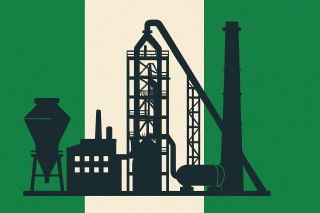As government economic stimulus packages for dealing with COVID gradually faded out in 2023, Europe's construction and infrastructure sector witnessed a fall in demand and saw the collapse of many developers. Although inflation is set to decline, aleviating the cost of building materials, analysts CIC-Market Solutions still expect construction output in Europe to have declined by 2.8 per cent in 2023 with a further 2.7 per cent drop forecast in 2024. And while the sector sees demand slipping away, the EU still requires the sector to work on a greener footprint.
CIC Market Solutions forecasts the sector to rebound by just one per cent in 2025, with the level of activity still below that recorded in 2019.
Meanwhile, Euroconstruct has downgraded its forecasts. It estimates that construction activity in the EU-15 to have declined by 1.7 per cent in 2023 and 2.3 per cent in 2024. Germany and Scandinavia have slipped compared to earlier forecasts and are now predicted to see a -2.2 per cent and -5.7 per cent decline in 2024.
Decline in housing demand
Look behind the economic forecasts for construction activity and the primary cause for the lack of demand is the housing sector, and new housing in particular. For example, the forecast for Germany points to a contraction of 6.3 and 15 per cent in new housing for 2023-24, according to CIC Market Solutions. While new housing accounts for roughly 20 per cent of German construction, the outlook for housing in Germany is bleak. “The market has been hit by the triple effect of diminished public support, monetary tightening and inflation,” states CIC Market Solutions.
House sales in France perform little better as they slid by 11.6 per cent in 2023 and are forecast to drop 9.8 per cent in 2024, according CIC Market Solutions. In France housing accounts for about 50 per cent of construction output, including maintenance. New housing in France is expected to see a fall of around 22 per cent in 2024 and three per cent in 2025, according to CIC Market Solutions. Housing starts are expected to fall below the 1992-95 lows in France, about 240,000 units compared to 275,000 units at the time. Last year, France's housing starts registered 286,000 units.
Resilient public works
Staying with France, public works projects did much better than expected in 2023 with a four per cent rise in activity. But in 2024, initial forecasts from CIC Market Solutions indicate a growth of just 0.7 per cent. The Grand Paris Express and Olympic projects are coming to an end but there are several large-scale projects to keep the sector growing.
Germany's federal and state governments have gone on the offensive to stimulate new infrastructure. In September, Chancellor Olaf Scholz called for a national effort to cut red tape, by speeding up the roll-out of railway and power projects with automatic approval of applications when they were not met by timely responses from the responsible authorities. However, the agreement recognises EU rules on environmental protection and access to justice that may hinder faster roll-out of projects.
A greener sector to emerge?
While the EU has seen a fall-off in construction activity, greener solutions and standardisation of their rules are proceeding. EU legislators reached a political agreement to overhaul the bloc's regulation of construction products in December 2023. But the deal still must be translated into legal form before it is approved by the European Parliament. What's more, a harmonisation process is expected to exist up until 2039, bringing all kinds of products from cement to bricks and glue into a new set of rules rather than the various permits that are currently required. So, a 15-year grace period will exist following the entry of the new green rules in 2024 for construction products. Progress for the construction sector remains in the slow lane.
